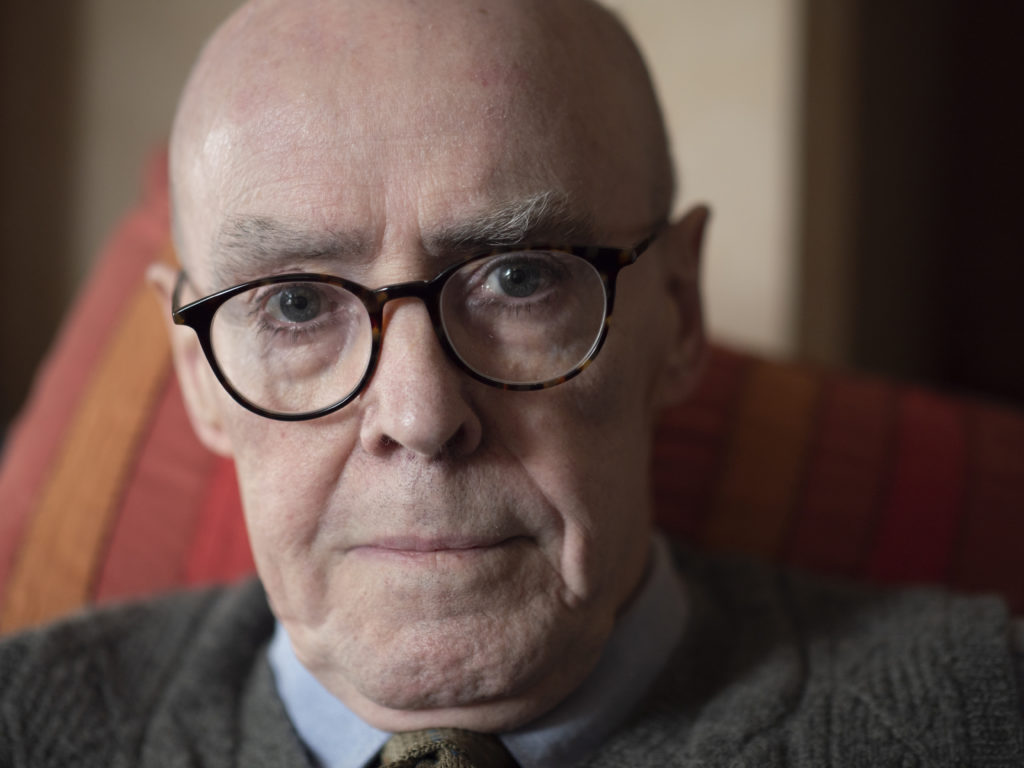The rich legacy of Seamus Heaney and Ciaran Carson —remembered for more than just their verses
 Ciaran Carson
Ciaran CarsonIN IRELAND poets are often remembered more for having been poets than for their poetry.
That may seem an unkind observation but I don’t intend it as such. Currently two of our late great poets are being honoured, Seamus Heaney and Ciaran Carson.
Heaney died ten years ago and it hardly seems as long.
His passing touched more people than actually knew much of his work, though most perhaps knew the poem Digging since it was on the school curriculum.
In this poem, the young Seamus is day-dreaming about being a writer accomplished enough to be comparable to his forebears who worked the land, turning spuds or digging for turf.
I don’t like the ending in which he resolves to dig with a pen that it just resting in his hand. The resolve seems over confident.
But then the paradox is that he has just actually written that poem so perhaps the pen is resting, its work done, as his father might rest on his spade.
My point is that Heaney was widely loved by people who didn’t read much other poetry.
Most of the poetry being bought in the country was written by him.
He signed so many books that the joke was that an unsigned copy of one of them would have had more rarity value.
He wasn’t just a poet; he was a natural performer, and as such he impressed as affable and unpretentious.
He was a personality poet.
And he represented a rural Irish culture in Northern Ireland. Part of Heaney’s importance was that he validated that culture in a generation in which it was dented in its confidence, having been cut off by partition, and in which it was waning anyway with the decline of rural life.
He reminded you of your da and your da’s da. And yet he had an educated eloquence you don’t actually find much of in the back roads round Lough Neagh.
After he died, the Heaney Home Place was established in Bellaghy, an arts centre created out of an old police station to memorialise his life and work.
Nearly every time I went there I would meet and chat with his brothers Charlie, Dan and Hugh. And I could see how they loved Seamus and his work.
Usually an education is expected to cut a country boy off from his family, make him less intelligible to them.
You hear it, don’t you — “Sure I knew him when the arse was out of his trousers and there were no airs about him then.”
But there never were airs about Seamus Heaney. His achievement was in retaining his authenticity while being elevated to the halls of Harvard and the Nobel Prize.
Ciaran Carson died four years ago and is honoured in the coming weeks by a conference at Queen’s University Belfast where there will be readings by poets he nurtured through the writing group there, including my wife, Maureen Boyle.
Ciaran was a city boy. He grew up on the Falls Road. He had a stammer so didn’t speak with the grace and flow of Heaney but he also had his tap root in the Irish - and in his case Gaelic - culture.
He opened every poetry reading with a tune on his whistle, and a reflection on the Aisling, the song heard in a dream. A friend of his tells me that this was Ciaran’s device for controlling his stammer. He has said he was unsure about his allegiance and his Irishness because he had learnt Irish at home and English on the street. Perhaps that uncertainty produced the stammer. It also created a fascination with words and the range of meanings one word might have.
I think he intuited some transcendental root to language.
When I dedicated a book to him my publisher asked me to check where the fada went in his name. He told me he never bothered with it.
A few weeks before he died he called me while I was having lunch in a restaurant in Edinburgh during the book festival. He wanted to discuss my transcription of a Gaelic song to the tune of the Z Cars theme which I had been taught to sing as a child at the Gaeltacht. I went out into the street to take his call and he made me sing it to him. Then he sang it back to me, with the beat at a different point on the line.
It mattered to get these things right.
I photographed him at his home two weeks before he died.
The poems of Heaney and Carson will be read in the coming weeks and in generations to come, and recordings will survive of their readings so that their voices will be heard and their mannerisms made plain.
And more academic papers will be written about them but what we will lose in time is the living recollection of personal engagement with these brilliant men, how genial and considerate they were.

